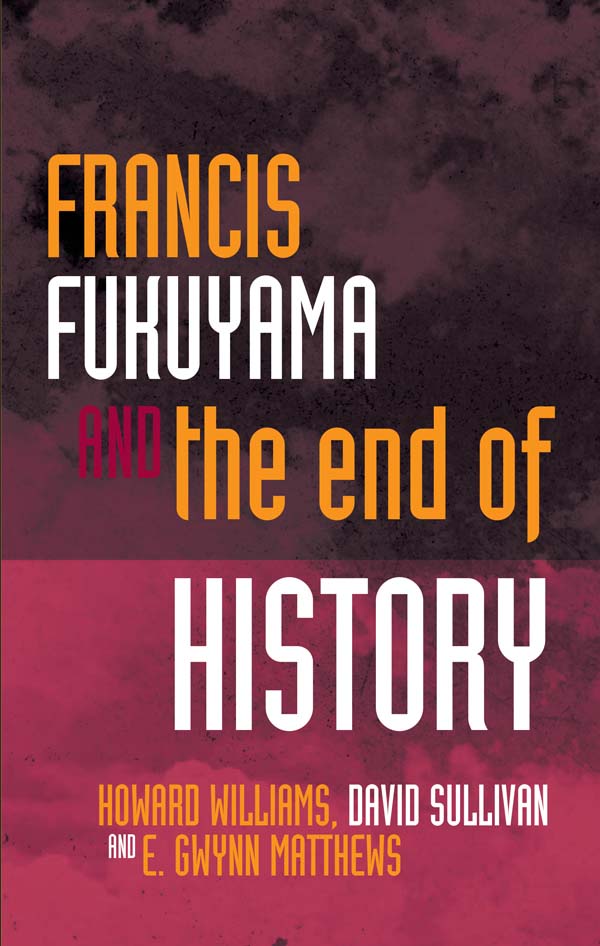Francis Fukuyama and the End of History
Author(s) Howard Williams,E Matthews,David Sullivan
Language: English
Genre(s): Politics
Series: Political Philosophy Now
- December 1997 · 288 pages ·216x138mm
- · Hardback - 9780708314272
- · Hardback - 9781783168767
- · eBook - pdf - 9781783168774
- · eBook - epub - 9781783168781
In the early 1990s the American academic, political commentator and government advisor, Francis Fukuyama, leapt to prominence with his argument that society had entered a new and lasting phase. He claimed that the change was so dramatic that it might be accurately depicted as the end of history. Fukuyama derived his argument from the writings of Kant, Hegel and a critical reading of Marx. This new phase represented the worldwide triumph of liberal democracy with the collapse of communism. History has ended in the sense that there is no more room for large ideological battles. This volume is an in-depth discussion of Fukuyama's argument. It also relates Fukuyama's theory of history, to Karl Popper's criticism of historicism and attempts to denote the connection between Fukuyama's account of history and its importance in evaluating the recent course of international relations and US foreign policy.
'This excellent study deals with Francis Fukuyama's high-profile, and controversial, work on "The End of History"...the authors leave one convinced of Fukuyama's importance, though not necessarily his correctness...This book is a fascinating read, and is itself a substantive and timely contribution to the philosophy of history.' Philosophy in Review


